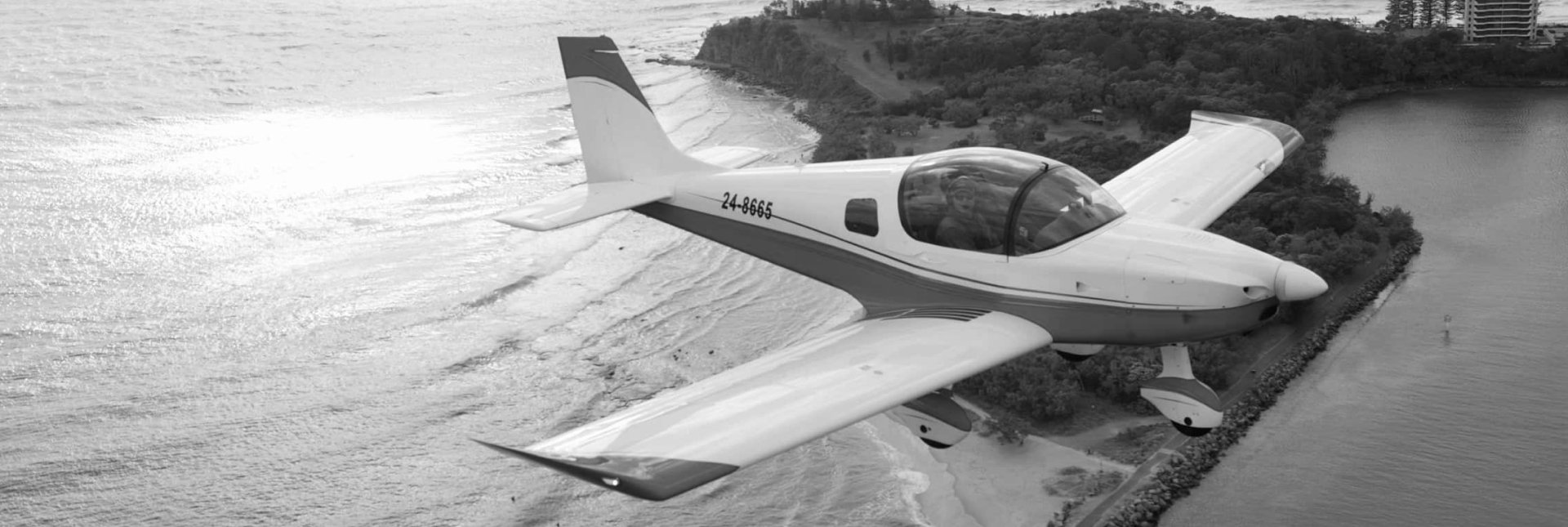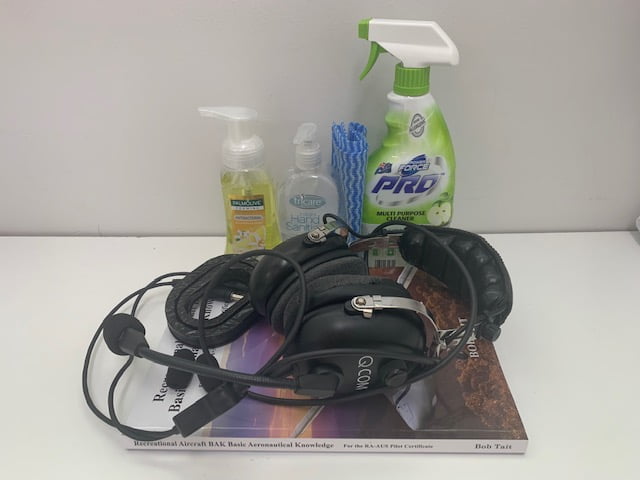Australia has recently introduced the same virus containment measures as other countries. At first it was just overseas flights and large festivals, events and meetings being cancelled; then it was gyms, restaurants and pubs forced to close. People who can, are being asked to work from home. Interstate travel is now restricted and further restrictions will be introduced every day. Schools have closed schools.
How will this affect your flight training? It doesn’t have to – if your flight school is in a state where it has not been told to close and if you and your flight school take the following measures to ensure all staff remain well. Flight training is an activity which is done in close proximity to another person. The chances of catching the Coronavirus will be reduced, or even eliminated, if you and your flight school follow these suggestions.
What students can do when flying:
- Clean your hands regularly with soap and water or alcohol-based hand sanitiser*
- Cover your nose and mouth with a tissue or bent elbow when coughing or sneezing
- Avoid touching your face, nose and mouth (do so with the back of your hand or with a tissue)
- Stay home if you are unwell, have a cough, sore throat, temperature or runny nose
- Stay 1 metre away from other students in the office and particularly stay away from anyone who is coughing or sneezing (suggest they go home…)
- Some people say that using a nasal spray can reduce the likelihood of being contaminated but this could be a myth – do your own research.
- You could experiment with tucking your headset mic (if you own a set) inside a face mask (if you can find one) to see if the microphone still picks up your voice clearly
As flight training students already know, looking after yourself by eating a healthy, balanced diet, getting regular physical activity, sleeping well and reducing stress is important all the time. For anyone who does not have symptoms, wearing a face-mask is not necessary but could certainly provide peace of mind. At many flight schools, instructors are contractors and only get paid when they fly, so some flight schools will be keen to stay open if their instructors do not qualify for any of the available government handouts.
If you do end up in quarantine, or your flight school closes for an unknown length of time, stay enthused.
What students can do when not flying:
- Refresh your memory about procedures or get ready for an upcoming lesson, by watching the GoFly Online videos which cover all the RPC ab initio pre-flight and in-flight lessons, cross country lessons, Instructor Training and much more. There are interviews with pilots, videos about how to cope in emergency situations plus a reality TV show about learning to fly. There are also over 25 blog articles. More content for General Aviation and CPL students will be added in the next four weeks plus there will be some Q and A on each video so you can test your understanding of the topic.
- Check out aviation videos on YouTube
- Check out sim videos on YouTube such as those created by Aus Flight Simmer
- Use a flight simulator such as Infinite Flight, a game for your iPhone, or if you are using a computer, try X-Plane
- Practice procedures in a real simulator if there is one open in your area
- Catch up on some reading/listening/viewing: you can read blogs online such as those found at Bold Method or aviation mags available online and at newsagents. You can listen to some podcasts or watch some movies such as those listed at the bottom of this page. You can read some aviation-themed books such as this new release: So you want to become a pilot
Measures which can be taken at flight schools:
- Place a sign on the door alerting people who have developed a cough, sore throat, fever or shortness of breath, within 14 days of overseas travel, to go home and call 13 HEALTH (1343 2584 in Australia).
- When possible, leave all office doors open so that people don’t need to touch the handles
- Wipe down all desks, flat surfaces (and even ERSA covers and maps!), door handles, light switches, merchant facilities and keyboards every couple of hours
- Provide boxes of tissues in the common areas
- Provide hand sanitiser in public areas and soap in the bathrooms
- Get a small tub for each plane and keep a box of sanitising wipes, an antibacterial spray (even Glen 20 will work) in each aircraft and insist that the instructors and students wipe down the controls, screens, headsets and handles and other touch points after each flight
- Encourage all students to purchase their own cheap headsets, such as the $150 PNR 2000 (in Australia)
- When students cannot afford their own headsets, order a bulk supply and issue them with a mic muff each to put onto the school’s existing headset mic, and tell them to keep it safe and use it on their next flight, plus wipe down the headsets between use. A $150 headset is around the same price as 30 mins of flying so they should be able to afford this.
- When students cannot afford their own headsets, order cheap ones and provide them to full-time students for the duration of their training after the payment of a refundable bond (but getting them back could be problematic if your school then closes down for 2-4 months)
- Provide a digital infrared forehead thermometer at reception for measuring the temperatures of staff members (and students)
- As a third last resort, purchase close-fitting and dense weave or plastic masks for the instructors from wherever you can get them (even ventilator masks from a hardware shop will do) and find a way of inserting the headset mic in the side furthest away from the student
- As a second last resort, cease dual flights, send instructors home and operate with just one staff member who supervises and charges private hires (organised by phone or online booking), with the privet hire pilot responsible for wiping down all touchable surfaces with the sanitising products, after their flight.
- As a final resort, close up shop and the flight school owner and instructors could make use of any relevant offered government assistance, council and airport incentives such as freezing mortgages, freezing any aircraft or other bank loans, freezing rent or lease payments, delaying paying payroll taxes, drawing down some super, accessing Centrelink (in Australia) or other payments.
- Use the time to create Facebook, YouTube or Google ads, create content in a private Facebook group for your existing students so they stay connected to you, write blogs, clean the hangar, build a sim, do that mini renovation you have been wanting to get done, update the syllabus, and do all the jobs that you never get time to do, so that when restrictions are lifted your flight school can be better and your business more resilient.
If you have a great idea which might help other students or flight schools, why not share it?
Anne-Maree Britton
Marketing Manager, GoFly Group
*Things are grim out there. If you cannot find hand sanitiser on the shelf at your local supermarket, chemist or Officeworks stores, think outside the square. Order a bulk supply from a cleaning products website such as Tensens and then put it into smaller containers. Maybe sanitising wipes can be bought at a baby supplies shop if your supermarket keeps running out. I do not claim to have any medical background. Like everyone else, we are making things up as we go along.





Leave a Reply